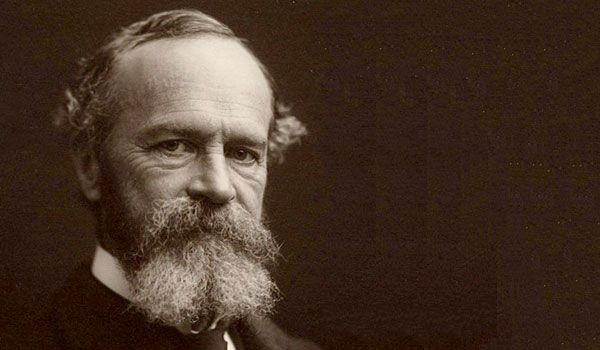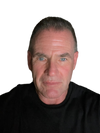New Doors.
Success is the sum of small efforts perfected repeatedly until they become habits.

Results can only change when we change our consistent actions and make them habits.
One of our core human needs is to grow. In Abraham Maslow’s terms to self-actualize or optimize. Our challenge is clear. Our old thinking and actions got us to this point. To get something new in life, we must do something we have never done. We must change and evolve. More simply put, we can’t open new doors with old ways.
I am flight, dive, and jump certified, and I hold dan rank (black belt) in four different martial arts. This means I am competent to fly a plane, use scuba gear for diving underwater, employ a parachute to jump out of a perfectly good airplane, and defend myself against aggression. I am not bragging. I acquired these skills out of fear. Let me explain.
As a young boy, I lost several fist fights to bigger, stronger bullies. Getting beat up sucks. I hated to be afraid. To stop being afraid and losing fights, I started taking martial arts right after I could drive. I wanted to get the stink of fear off me. I started my practice in the late 1970s and have continued to this day. I have fought thousands of times, getting my bell rung dozens of times and badly bruised and bloodied in my early days. For the last two decades, I have specialized in training fighters. The repetition necessary to learn just one martial art style is an everyday task accomplished over the years, not months. Now imagine acquiring the skill of four different arts. Endless repetition. Needless to say, I am very good with my hands and fearless in a fight.
At one time in my life, I was deathly afraid of heights. A two-story building scared me. The high diving board as a kid was the most daunting challenge I could imagine. My solution was extreme. I learned to fly a plane and then skydive. I remember being paralyzed by fear as I came around for my first landing. My flight instructor said, “cut the engine and point the nose of the plane at the ground.” “What?? Are you nuts??” I replied. To date, I have over 5,000 landings.

I learned to skydive to further conquer my fear of heights. My first freefall is memorialized in the post Terminal Velocity. It did not go as advertised. I took up scuba diving to impress my wife at the time. She thought I was afraid. She was right. Breathing underwater is not natural. I was mortified with fear. Today, I have my advanced diver rating and well over a hundred fifty dives in all sorts of conditions.
Notice a pattern. Fear never stops me, but it does delay me. Each skill I acquired mandated making a habit of being excellent. My life and well-being depended on my skills. My excellence was born from a crazy amount of repetitions. I believe our most significant obstacle to accomplishment is a lack of consistency. We’re inconsistent because we’re not excited enough about the expected results. I was thrilled to master my fear by acquiring new skills. I opened new doors by creating new habits in my mind and body.
If I stuck to my old ways, I would still be caught in a cycle of failure and fear. We can’t open new doors with old ways. My way out of my dysfunction was to create excellence in habits. I broke old behavioral patterns, replaced them with new functional solutions, and endlessly repeated the process. Please realize when I started martial arts, I could not throw an effective punch. Now I can break concrete with my fist. (Please don’t try this at home) I had to relearn my body’s dynamics from scratch. The payoff is. I am not afraid.
How do we create habits? First and foremost, what are habits?
Dr. Wendy Wood, a psychologist at the University of Southern California’s Habit Lab, found that an estimated 43% of the activities engaged in each day by her study participants were done habitually while thinking of something else (Wood, Quinn, & Kashy, 2002). Habits are what we can automatically do without consciously thinking.
How do we know when to start and stop such habitual activities if they are not done consciously?
Neuroscientists at the Massachusetts Institute of Technology found that when practicing a habitual routine such as brushing one’s teeth, specific neurons in the basal ganglia will activate or “fire” at the beginning of the routine. Then, they lay quiet while the routine proceeds. Finally, they fire again when the routine is completed (Martiros, Burgess, & Graybiel, 2018).
This means that even if you are thinking about something else, you can automatically start and then finish a habitual routine because these specialized neurons will tell you to do so. We are wired to be automatic. How long does it take to form a habit? One often-cited study (Lally, van Jaarsveld, Potts, & Wardle, 2010) indicated an average of 66 days to establish a new pro-health habit, like eating a piece of fruit with dinner. The time it took participants to reach 95% of their asymptote of automaticity ranged from 18 to 254 days, indicating considerable variation in how long it takes people to get their limit of automaticity and highlighting that it can take a very long time. Complex skills require much longer time frames.
The notion of 30 days to form a habit needs to be restated to more like 90 days for a simple task. Consider a year to learn more difficult habits like working out regularly. For martial arts, three years is the minimum. The research into habits and their formation is new and illuminating, but the process of human automacy is old and primitive.
“We are what we repeatedly do,” Aristotle (384-322 BC) famously said. “Excellence, then, is not an act but a habit.”
In 1892 William James (1842-1910), considered the father of modern psychology, delivered a lecture to teachers in Cambridge, Massachusetts, where he said the “great thing” in education is to “make our nervous system our ally instead of our enemy.” The more of the details of our daily life we can hand over to the effortless custody of automatism, our higher powers of mind will be set free for their own proper work. He is talking about using habits to our benefit.
James defines a habit as “any sequence of mental action which has been frequently repeated tends to perpetuate itself; so that we find ourselves automatically prompted to think, feel, or do what we have been before accustomed to think, feel, or do, under like circumstances, without any consciously formed purpose, or anticipation of results.”

James lays out 3 maxims for acquiring a new habit.
The first Maxim is: “The first is that in the acquisition of a new habit, or the leaving off of an old one, we must take care to launch ourselves with as strong and decided an initiative as possible. Accumulate all the possible circumstances which shall reinforce the right motives; put yourself assiduously in conditions that encourage the new way; make engagements incompatible with the old; give your new beginning such momentum that the temptation to break down will not occur as soon as it otherwise might.
The second Maxim is: Never suffer an exception to occur till the new habit is securely rooted in your life. Each lapse is like the letting fall of a ball of string that one is carefully winding up; a single slip undoes more than a great many turns will wind again. Continuity of training is a great means of making the nervous system act infallibly right.
A third maxim may be added to the preceding pair: Seize the first possible opportunity to act on every resolution you make and every emotional prompting you may experience in the direction of the habits you aspire to gain. It is not in the moment of their forming but in the moment of their producing motor effects that resolve and aspirations communicate the new ‘set’ to the brain.
Awareness of our habits can help us distinguish between those that align with our goals and those that stand in our way. Romance, attraction, and relationship failures are habits. Poor health, exercise, and well-being are habits. Procrastination and not finishing what we start are also habits.
Success is the sum of small efforts perfected repeatedly until they become habits.
Until next time. Travel safe.
End Notes
Lally, P., van Jaarsveld, C. H. M., Potts, H. W. W., & Wardle, J. (2010). How are habits formed: Modelling habit formation in the real world. European Journal of Social Psychology, 40, 998–1009.
Martiros, N., Burgess, A. A., & Graybiel, A. M. (2018). Inversely active striatal projection neurons and interneurons selectively delimit useful behavioral sequences. Current Biology, 28(4), 560–573.
James, William (1897) Psychology: The Briefer Course
Wood, W., Quinn, J. M., & Kashy, D. A. (2002). Habits in everyday life: Thought, emotion, and action. Journal of Personality and Social Psychology, 83(6), 1281–1297.

